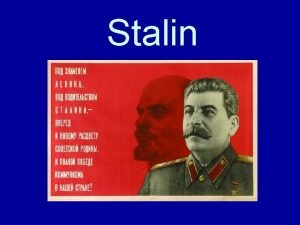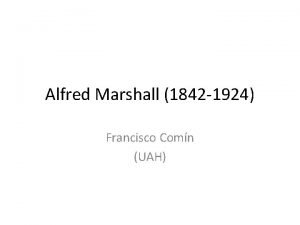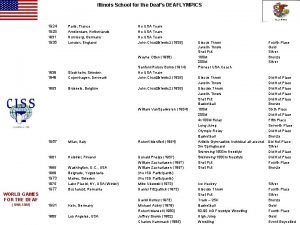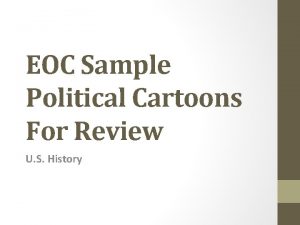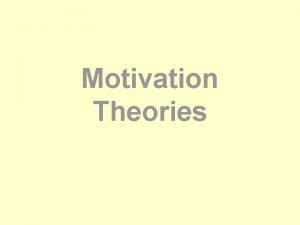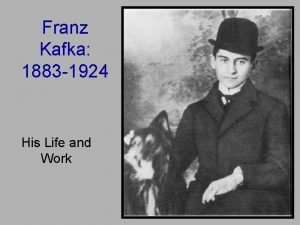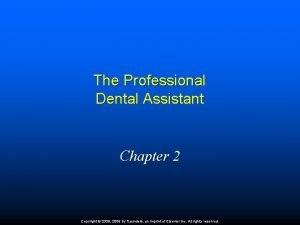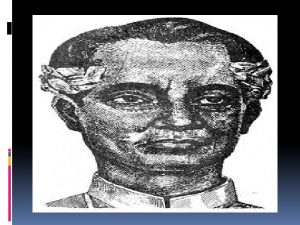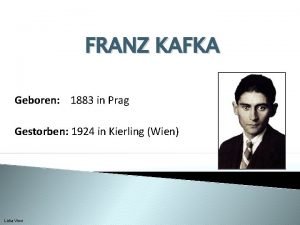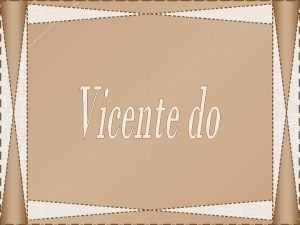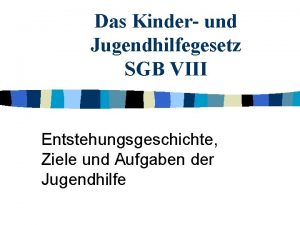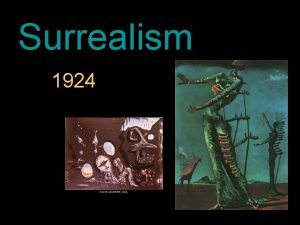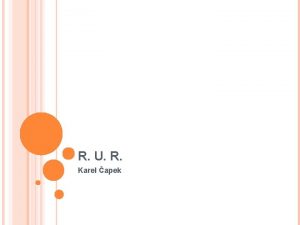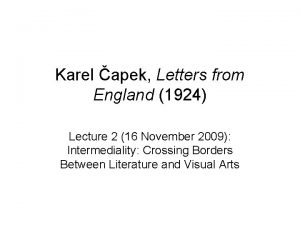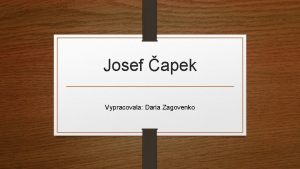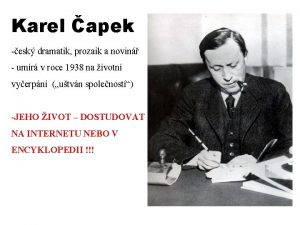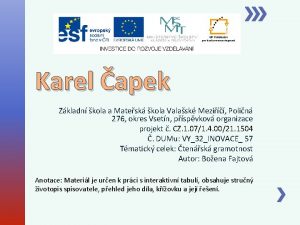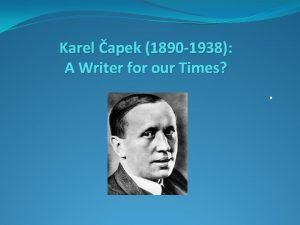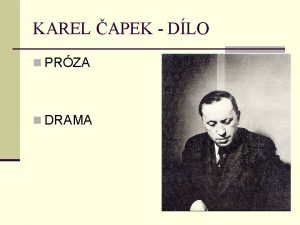Karel apek Letters from England 1924 Comparative literature















- Slides: 15

Karel Čapek: Letters from England (1924) Comparative literature 2 A: Frontiers (Crossing Borders)

Ø Lecture programme (Wed 10/11; Tue 17/11, Wed 18/11): 1. Intro to: Travel writing and border crossings 2. Identity and Intermedial crossings in Letters from England 3. Identity and Narratological crossings in Letters from England

Etymology Definitions of travel: a. Etymology: OED: 1. travail – “labour, toil; suffering, labour of childbirth 2 a. The action of travelling or journeying • cognate Spanish verb trabajar (to work), Portuguese verb trabalhar, French verb travailler (to work) and Italian travagliare. • Other European languages prefer words derived from that for “road: ” Latin via > viaggio, voyage, viajem in Italian, French, Spanish and Portuguese. In like fashion, Polish droga, Czech and Slovak cesta, Hungarian ut, Romanian drum, Croatian put • Dictionary of Standard Czech Language: pout´is: 1. equivalent to cesta (travel), 2. pilgrimage. It is also an euphemism for the word to die: skončit svou životní pout´ - to end one´s life journey. Also, anabasis (Xenophon) is an expedition from a coastline up into the interior of a country and odyssea (Homer) – a long and erratic journey Paul Fussell: “a traveller is one who suffers travail, a word deriving in its turn from Latin tripalium, a torture instrument consisting of three stakes designed to rack the body. ” (Abroad: 39)

tripalium

tripalium

Travel in Literature Ø A journey and return home – telling/writing. The process of becoming; “awareness of idea of oneself through experience of the other” (Bakhtin, 115) Ø One of the “oldest and largest cluster of metaphors in any language” (Adams: 3) Ø Modern historiography based on travel (Herodotus) Ø Pilgrimage, religious aspect of travelling Ø Fictionalisation of travel experience – between fiction and non-fiction: : “from Herodotus to Odysseus to Marco Polo – travellers have returned home and started talking: spinning elaborate tales about their adventures, speaking of monsters, beauties, treasures, and harrowing escapes from danger. ” (Zilcosky; The Poetics and the Politics of the Modern Journey, 3)

Why travel? Ø “Immigrants, exiles, refugees, soldiers, students, scholars, artists, business travellers, and tourists have been the key actors in a global story of unremitting movement. (Koshar, Rudy. German Travel Cultures, 6) Ø all cultures are “travelling cultures” (Clifford, 1997: 17 -46) Ø cultural identity is “the result of negotiation and intercultural transfer, for the powerful as well as the powerless, for ‘natives as well as strangers” (Koshar, 7) Ø “travellers move through “intercultures” or “contact zones” (Pratt 1992) where national, class, and gender identities are affirmed but potentially also destabilized or modified” (Koshar, 7)

What is the travel writing genre? Ø The notion of gaze: Orientalism / Occidentalism Ø Travel and theory: “The Greek term theorein: a practice to travel and observation, a man sent by the polis to another city to witness a religious ceremony. ‘theory’ is a product of displacement, comparison, a certain distance. To theorize, one leaves home” (Clifford, 177) Ø Travel and the travel writing genre as a fluid experience: “travel book, ” “travel narrative, ” “journeywork, ” “travel memory, ” “travel story, ” “travelogue, ” “metatravelogue, ” “traveller’s tale, ” “travel journey”…. (Jan Borm)

Interwar Travel Writing • The Great War, scientific discoveries and explorations • Development of communications and mass transport, globalization and tourism • Anxiety about the condition and value of modern Western civilisation (Carr: 73) • Great Britain: nowhere to go, search of identity, creation of intellectual diaspora (Fussell) • First Czechoslovak Republic: travel as representation of a newly established identity and independence, learning and exploration of the international poetics

Interwar Czech Travel Poetics Ø Poetism (1924) – “the art of life, the art of being alive and living life” …. “it is the art that does not live in the galleries or in private collections but “outside in the streets, in the architectures of the cities” … “We sought out in films, the circus, sport, tourism, and in life itself the expressive possibilities which were not to be found in mere pictures and poems” (Karel Teige, Manifest of Poetism)

The Poetics of Simultaneity Ø Apollinaire, “Zone: ” simultaneity of textual and visual, time and space, different cultures Ø Breaking the boundaries between literature and arts, between genres Ø Intergeneric forms such as picture poetry, typography, collages

Types of “crossings: ” Jindrĭch Štyrský, Souvenir, 1923, collage of photographs, printed matter and ink, 23. 9 x 30. 2 cm © National Gallery, Prague

Types of “crossings: ” Karel Teige (Czech, 1900– 1951) Travel Greetings (Pozdrav z cesty), 1923 Photomontage (printed matter, ink, and watercolor), 32. 5 x 23. 3 cm City Gallery Prague © Karel Teige - the heirs c/o DILIA

Types of “crossings: ” Karel Teige. Departure for Cythera. 1923 -1924. Collage

Summary: things to consider Ø Travel as movement / creation / pain Ø Travel as telling and writing Ø Home / abroad, traveler/audience, culture/nature Ø Not important what we see but how we see it Ø Crossings and simultaneity between countries, identities, cultures, memory, reality, fiction, traditions, arts, genres
 Karel apek
Karel apek Sky letters in english
Sky letters in english Stalin becomes dictator
Stalin becomes dictator Alfred marshall (1842-1924)
Alfred marshall (1842-1924) Deaflympics 1924
Deaflympics 1924 A wise economist asks a question meaning
A wise economist asks a question meaning Elton mayo 1924
Elton mayo 1924 Franz kafka geboren
Franz kafka geboren The adaa was formed in 1924 by:
The adaa was formed in 1924 by: 1924 summer olympics
1924 summer olympics Ito ang lugar na pinagdausan ng unang balagtasan
Ito ang lugar na pinagdausan ng unang balagtasan Kafka expressionismus
Kafka expressionismus Vicente do rêgo monteiro cubismo
Vicente do rêgo monteiro cubismo Rjwg
Rjwg 1883-1924
1883-1924 Salvador dali art movement
Salvador dali art movement


